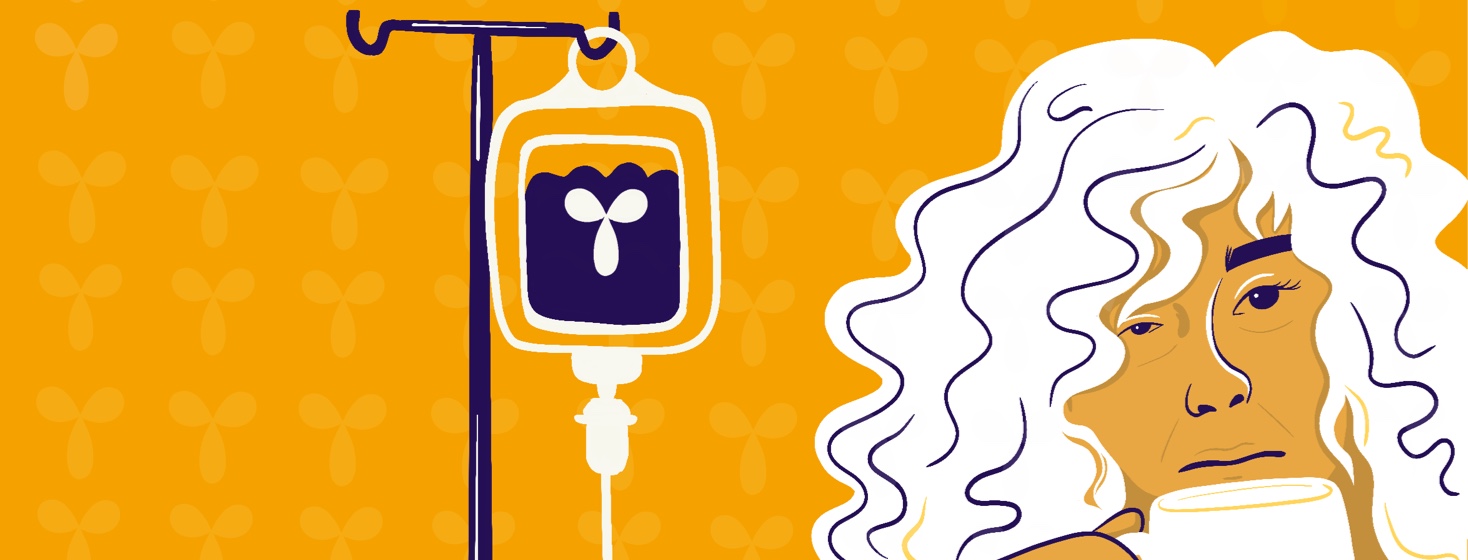The Infusion Hangover
After years of struggling with IBD symptoms, when I was finally diagnosed with Crohn’s disease, I was most hopeful of not only finding symptom relief, but of any chance of healing the damage done to my body over time. My doctor's first attempt at correct treatment was oral – a combination of 6-MP along with a prednisone boost. Like many other IBD patients, these oral medications alone did not provide me any symptomatic relief, and they were somewhat quickly transitioned out for my first biologic – Entyvio.
Finding the right biologic
My doctor chose Entyvio first because it was a gut-specific biologic, and he felt like it could have the most benefit with the least amount of side effects. For several months, I received my Entyvio infusions regularly. I found some reduction in symptoms, but unfortunately not enough to feel well or like I was thriving. Then, I was diagnosed with another autoimmune disease, Rheumatoid Arthritis, and a gut-specific biologic would not be enough to manage both conditions. After lengthy battles with the insurance, I was finally switched to Remicade.
This upcoming spring will mark 5 years on Remicade. The first year wasn’t perfect, there was a lot of tinkering with my dose and the timing of my infusions in order to find optimal results, but I’m so grateful that for the last 4 years, it’s kept me feeling almost as good as possible. It has also made me feel like an infusion veteran, having already been hooked up to a biologic more than 70 times.
Receiving an infusion for IBD
Receiving a biologic infusion is a little different than receiving fluids, steroids, or other medications via IV. An infusion contains a specific amount of medication, and it runs over a set amount of time (i.e., Entyvio was about 40 minutes for me, whereas Remicade is 2.5 hours) – meaning the medication is pushed into your body slowly rather than all at once.
Some patients receive premedications or fluids in addition to their biologic infusion, which may change the time requirements and the overall infusion experience. For example, I take Tylenol and Benadryl orally, I receive a push dose of IV Solu-Medrol (methylprednisolone) through my IV, and I receive a liter of fluids in addition to my medication. Benadryl frequently makes me very tired, and I often end up napping during and/or after my infusion.
In general, my experiences with Entyvio and Remicade, with and without pre-med, have led to similar results. Or what I’ve come to call the "infusion hangover."
What's an infusion hangover?
For me, a biologic infusion ends in a hangover. For about 24-36 hours after receiving my medication, I feel some low-key side effects – exhaustion, brain fog, headaches, and sometimes nausea and muscle aches. Sometimes this hangover is minimal, and I can mostly go about my normal business, but more often than not, the 2 days after my infusion are reserved for as much rest as possible. I work full-time, so I’ve arranged that my infusions typically take place on Fridays, giving me the weekend to recover.
After a biologic infusion, I try to eat nourishing foods, hydrate well, and give my body the time for physical rest, even if I am not sleeping. In full transparency, I also experience heightened anxiety after my infusions, so I typically don’t sleep well but find that I am both physically and mentally more wiped out than usual.
If you receive biologic infusions, what else have you come to expect afterward? I’d love to hear your thoughts below!

Join the conversation